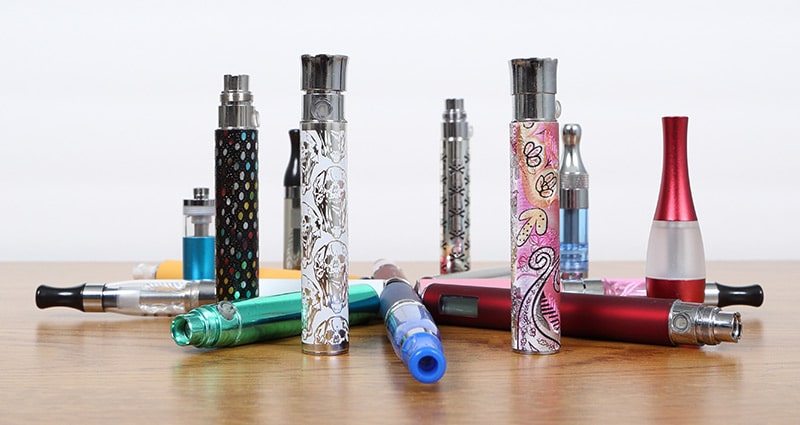A big misconception is that vaping is somehow safer than traditional smoking. Don’t misunderstand it: vaping is not safer or better than smoking traditional cigarettes. In some cases, vaping can lead to worse health outcomes.
Dean S. Edell, MD, pediatric pulmonologist with Our Lady of Lourdes Children’s Health, helps us understand the dangers of vaping, particularly for teens’ developing lungs. Vaping is not a safe alternative to smoking by any means.
Unfortunately, one in five high schoolers vapes or uses e-cigarettes, according to a study published in the Journal of the American Medical Association Pediatrics.
Lots of Names for the Same Thing
No matter the name, vaping, e-cigarettes, Juuling, e-hookahs and the like are all unsafe. Vaping is the act of inhaling a vapor created by an electronic cigarette or some other vaping device. These battery-powered smoking devices have cartridges filled with liquid containing nicotine and other chemicals that’s heated into a vapor and inhaled by the user.
Now AND Later — Potential Damages from Vaping
Vaping can have both short-term and long-term health consequences. Vaping is associated with the destruction of lung tissue, and over time it can cause scarring in your airways. Dr. Edell has seen acute lung injury from vaping in teenagers that has been life threatening. It doesn’t happen to every teen who vapes, but it is a possibility and is devastating when it happens.
Addiction to vaping is a reality for anyone who uses it, whether it becomes a psychological habit, physical addiction or both. Vaping includes nicotine, which is the addictive substance in traditional cigarettes. Studies have found that some e-cigarettes deliver substantially more nicotine to users’ blood than traditional cigarettes.
During the manufacturing process for vaping products, chemicals are present that are known to be or may potentially be carcinogenic, or cancer-causing. Vaping products are not regulated by the Food & Drug Administration, and products ordered online may contain additional harmful chemicals.
Appearance matters. While some teens may choose to vape rather than smoke to avoid yellowing their teeth, vaping can cause long-term damage to your teeth and mouth. Because vaping leads to decreased lung capacity, it’s especially important that young athletes avoid these kinds of products. Vaping can also predispose users to lung cancer in the long term.
Honesty is the Best Policy
The best advice for parents to discourage their teens from vaping is simple honesty and ongoing conversations about the very real dangers to their health. Lisa Le, MD, pediatrician with Our Lady of the Lake Children’s Health, offers more advice for parents to talk with their children about drug use, including vaping.
Dr. Edell also encourages patients to be honest with their healthcare providers. Knowing early on about vaping use can improve outcomes. Be honest when seeking medical attention, especially about vaping use when the issue is respiratory related.
Additional Resources
The American Thoracic Society offers a number of fact sheets for patients, including one about lung injuries linked to e-cigarette or vaping product use.
The Campaign for Tobacco-Free Kids offers resources to protect kids from nicotine addiction.




